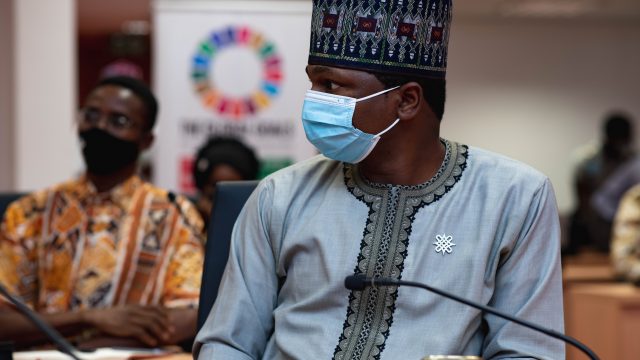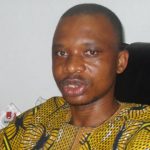By Sodiq Omolaoye (Abuja) and Silver Nwokoro (Lagos)
An election observer group, Connected Development (CODE), has expressed concern over alleged manipulation of presidential and National Assembly results in some states.
manipulation as LEDAP flays portal dysfunction
• Commission blames technical hitches, apologises to Nigerians
• Insists results safe, warns against inflammatory statements
An election observer group, Connected Development (CODE), has expressed concern over alleged manipulation of presidential and National Assembly results in some states.
The alarm was raised in Abuja, yesterday, at a world press conference addressed by Chief Executive Officer of CODE, Hamzat Lawal, who claimed he received the information from the organisation’s 20,000 community-driven observers on the ground.
Lawal alleged that the rigging plot involves slow upload of results on the Independent National Electoral Commission’s (INEC) portal, relocation of state collation centres without adequate information to stakeholders, outright denial of access of the new centres to accredited observers as well as collation of results for local councils where elections did not hold.
He said these criminal acts threaten the credibility of the election and would make it impossible for many people to accept the results announced by INEC.
He said: “CODE and its partners are, at this moment, calling INEC to indeed be independent and serve the people the Constitution has mandated it to serve.
“With 20,000 community-driven observers on the ground, CODE and its partners, using our electoral intelligence tool, Uzabe, have noticed a worrisome trend across the nation that points to gaps and unpreparedness within the structure of the electoral process, which is threatening the credibility of this election.
“We have several reports indicating that states, like Ekiti, Cross River, Imo, and Rivers State, have had their local council collation centres relocated without adequate information to stakeholders.
“In Ekiti, especially, we have it on good authority that all local council centres were relocated, and in most cases, accredited observers were, outright, denied access, and new locations were shrouded in secrecy.
“We have seen issues of elections not holding in some local councils and results being collated. This happened in Oru East, Imo State, where our observers confirmed that no election was held and, in fact, some voters were asked to vote in a private residential building of a party chieftain, which is clearly against INEC guidelines and the Electoral Act. Yet, we have results from that council. This is an indictment on INEC and all that our Constitution stands for.”
According to Lawal, “there is still a growing number of reports that several polling units opened polls very late and ended the process of voting, while voters were still in the queue, citing nightfall as reason, thereby disenfranchising thousands of voters across various polling units.
“We also noted that in many polling stations, the Bimodal Voter Accreditation System (BVAS) machines were reported to be malfunctioning, and observers even recorded a shortage of necessary materials.
“We are very concerned about the slow upload of results on the INEC result portal. At this point, the result portal has only 40,000 polling units’ results.”
He added: “Lack of adequate information, access to independent observers and strict adherence to the Electoral Act of 2022 and INEC’s guidelines will cause apprehension; a trust deficit that might lead to civil unrest and rejection of the overall outcome, and should be addressed immediately by the INEC chairman.”
ALSO, a group, Legal Defence and Assistance Project (LEDAP), condemned what he termed suspension of INEC’s result portal. INEC had, before the election, assured Nigerians that all results would be uploaded to its portal from various polling units across the country.
In a statement signed by Executive Programme Director, Pamela Okoroigwe, and Project Officer, Rosemary Egbede, the group said its election observers unsuccessfully tried, all day, to access the portal.
LEDAP, therefore, called on INEC to, as a matter of urgency, open the portal and ensure all results are uploaded directly from polling units.
It said: “INEC must rescue its image, which is already raising doubt about its preparedness and impartiality in the election. Despite the huge financial resources made available to INEC by the Federal Government, the goodwill on Nigerians it has enjoyed over the last year, and assurances of the Commission that it would conduct a free, fair, credible, and transparent election in 2023, the failure of INEC to provide electoral materials on time or upload election results in real-time from polling units to its portal, is not excusable.”
BUT the Commission said technical challenges with its system was responsible for delay in uploading election results to its Results Viewing Portal (IReV).
INEC said unlike off-season elections where the portal was used, it had been relatively slow and unsteady during the presidential and National Assembly elections.
National Commissioner and Chairman (Information and Voter Education Committee), Festus Okoye, made this known in a statement, yesterday.
As of 6:00 p.m., yesterday, checks by The Guardian revealed that the Commission uploaded less than 30 per cent of presidential election results.
Okoye said the Commission “regretted the setback, especially because of the importance of IReV in our results management process.”
He said: The Commission wishes to assure Nigerians that the challenges are not due to any intrusion or sabotage of our systems, and that the IReV remains well-secured. Our technical team is working assiduously to solve all the outstanding problems, and users of the IReV would have noticed improvements since last night.
“We also wish to assure Nigerians that results from the polling units, copies of which were issued to political parties, are safe on both the BVAS and the IReV portal.”
Okoye assured that results cannot be tampered with and any discrepancy will be thoroughly investigated and remediated, in line with Section 65 of the Electoral Act 2022.
He added: “While we fully appreciate the concerns of the public on this situation and welcome various suggestions that we have received from concerned Nigerians, it is important to avoid statements and actions that can heat up the polity at this time or promote disaffection towards the Commission.
“We take full responsibility for the problems and regret the distress that they have caused the candidates, political parties and the electorate.”
Source: The Guardian








